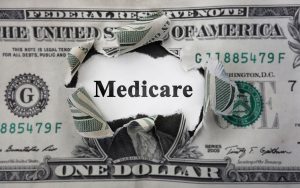So I read an article the other day about a new company called Rap Genius. The company consists primarily of a website that relies on crowdsourcing to explain rap lyrics to the masses who are not down with the urban vibe (aka, people over 30). The company takes lyrics such as these from Kanye West’s Gold Digger:
“She was supposed to buy your shorty Tyco with your money
She went to the doctor got lipo with your money
She walking around looking like Michael with your money”
and explains that they mean: The ex-wife was supposed to buy your baby some toys with the child support money but instead spent it all on so much plastic surgery that she looks like Michael Jackson (presumably before he died—my edit).
This is a Nelly and those are his Grillz
Here’s another example: Nelly’s song Grillz gets explained thusly: “Got 30 down at the bottom, 30 more at the top, all invisible set in little ice cube blocks” refers to the fact that Nelly is wearing “grillz” aka jewelry worn over the teeth, which are worth $30,000 on the top and another $30,000 on the bottom, with diamonds set right into the gold. So now you know.
According to the article about the $15mm investment that venture fund Andreesen Horowitz put into Rap Genius, the company’s goal is to “annotate the Internet” and, beyond rap music, “the company is slowly spreading to other categories such as literature, political speeches, and science papers.” Let me just digress for a moment and say that the website I would love to see is the one that turns political speeches into rap lyrics — wouldn’t it be sublime to see Joe Biden and Paul Ryan speak jive?
Anyway, when I read this story I thought two things:

Using Informed Awareness to Transform Care Coordination and Improve the Clinical and Patient Experience
This eBook, in collaboration with Care Logistics, details how hospitals and health systems can facilitate more effective decision-making by operationalizing elevated awareness.
- Why don’t I get to invest in crazy fun crap like this, full of pop culture and devoid of business models?
- I tell you this company is missing the number one market opportunity: explaining healthcare speak to the masses.
You may think Nelly’s lyrics are opaque, but have you ever seen an Explanation of Benefits from your insurance company? Makes the “30 down at the bottom, 30 more at the top” phrasing downright obvious compared to trying to make sense of what was billed vs. allowed vs. paid vs. subject to the deductible vs. amount left for the patient to pay.
It may be cool to understand rap lyrics, particularly if you are a 45 year old white dude with two kids, a golden retriever and a Honda Accord, but lets keep it real, yo (defined as: be realistic): we are living in a healthcare world that is rapidly turning into a retail market out of the emerging ashes of what was previously the domain solely of the healthcare wonkery. More than ever it is becoming downright essential for actual humans to understand the “rap” (crap?) that the healthcare world turns out.
Why now, as they say in the psychology business? Because tens of millions of Americans are within 18 months of having to select their own insurance plans from Health Insurance Exchanges without an human resources representative helping them; note that many consumers are already spending a huge amount of their own cash on medical expenses without any idea what they are actually spending it on or getting for it. As the healthcare world rapidly transmogrifies from the old-fashioned Marcus Welby version to a world of ACOs, Medical Homes, IDNs, etc. under the PPACA (yeah, I know…I think I just got a healthcare BINGO!), consumers are going to need not just transparency of costs, but transparency of language. I have spent nearly 25 years in the healthcare field and I am often just as confused reading some of this stuff as anybody else. I can only imagine what my grandmother would think of it all.
Grandma’s gettin’ her CMS on
Hey Grandmas out there, you think rap lyrics are incomprehensible? Witness this gem from the Centers for Medicaid and Medicare, that was referenced as part of a document for public comment issued last week relating to Medicare-eligible members such as yourself:
II. Computing the Inpatient Hospital Deductible for CY 2013Section 1813(b) of the Act prescribes the method for computing the amount of the inpatient hospital deductible. The inpatient hospital deductible is an amount equal to the inpatient hospital deductible for the preceding CY, adjusted by our best estimate of the payment-weighted average of the applicable percentage increases (as defined in section 1886(b)(3)(B) of the Act) used for updating the payment rates to hospitals for discharges in the fiscal year (FY) that begins on October 1 of the same preceding CY, and adjusted to reflect changes in real case-mix. The adjustment to reflect real case-mix is determined on the basis of the most recent case-mix data available. The amount determined under this formula is rounded to the nearest multiple of $4 (or, if midway between two multiples of $4, to the next higher multiple of $4).
I don’t know about you, but this sounds to me like one of those problems where you are trying to figure out the time the westbound train leaving Philadelphia at 55 miles per hour will intersect with the eastbound train that leaves Poughkeepsie going 62 miles an hour. I am not sure which part of the public can understand this verbiage enough to comment, but I don’t want to have to sit next to them at a cocktail party. Just think what Rap Genius could do for these people! The inpatient hospital deductible would make sense and hundreds of confused phone calls could be avoided.
Another example: In case you are a provider or patient and happen to mosey over to the American Medical Association website to ask a Frequently Asked Question about HIPAA gets this :
Are there any physicians or groups exempted from the HIPAA privacy requirements?
Yes—in limited circumstances. A provider (or provider group) would be exempt from the HIPAA privacy requirements where (a) the provider 1) has less than 10 full time employees and 2) all claims transactions to all payors are made solely on paper (regardless of whether the provider participates in Medicare or not); OR (b) the provider 1) has a practice of any size and 2) all claims transactions to all payors are made solely on paper and 3) the practice does not participate in Medicare. Under the HIPAA privacy regulations, “a health care provider who transmits any health information in electronic form” is a “covered entity.” Thus, a practice that accepts or uses any electronic transactions (or uses a business associate to do so) must comply with the privacy regulations–whether the practice has more or less then 10 full time employees. Providers with 10 or more full time employees, which might otherwise wish to conduct all claims transactions solely on paper, will—if claims are submitted to Medicare—be required to comply with the HIPAA privacy requirements. This is because the HIPAA Transactions and Code Set (TCS) regulations that became effective in October, 2003 require practices with 10 or more full time employees to conduct all Medicare transactions electronically. While at the present time (January 2004), a contingency plan enables Medicare to accept legacy (paper) claims, the contingency plan does not exempt covered entities from compliance with applicable privacy regulations. A reminder: the present contingency arrangement for compliance with the TCS regulations will not continue forever. Any practice with 10 or more full time employees that accepts Medicare must convert to electronic claims as soon as possible.
Say what?!?
So are we clear? No, I didn’t think so. But if Rap Genius were on the case, the answer might be: HIPAA ain’t all it’s cracked up to be, yo; watch your back because your info could be anywhere. You had better ask your doctor what he or she is doing with your file if it’s important to you. Oh, and by the way, HIPAA stands for the Health Insurance Portability and Accountability Act, in case you were wondering. Or something like that.
Just for kicks, I put the term “medication side effects” into the old Google-ator. First up was a website called Drugs.com. No, it is not a site for high school students to order supplies for after the prom. It is clearly intended to be a patient-directed site. I clicked on the Interactions Checker tab and put in Tylenol, figuring that’s an easy one. The answer, after agreeing to a massive legal disclaimer agreement that was in itself incomprehensible, is that there are a total of 153 drugs (867 brand and generic names) known to interact with Tylenol (acetaminophen).
How in the world is a consumer/patient supposed to navigate that? The information necessary may be there but I was overwhelmed by the choices in the world’s largest decision tree; if I was in the throes of worrying about a drug interaction I thought I might currently be having, I’d be dead before I could drill down to the right page. The Rap Genius version: if you are worried, call your doctor or 911 right now, for God’s sake!
One problem with applying the Rap Genius model to healthcare — Rap Genius crowdsources the answers. In other words, they rely on those in the know hipsters and rap phenoms who “get it” to translate for the rest of us regular rap-impaired people. If they take my advice and try to attack the massive healthcare marketplace they are going to need to exclude the traditional healthcare crowd from participating for fear we will end up right back where we started. Just keepin’ it real, yo.
[Photo courtesy of Flickr user Amanda M Hatfield]
This post appears through the MedCity Influencers program. Anyone can publish their perspective on business and innovation in healthcare on MedCity News through MedCity Influencers. Click here to find out how.














